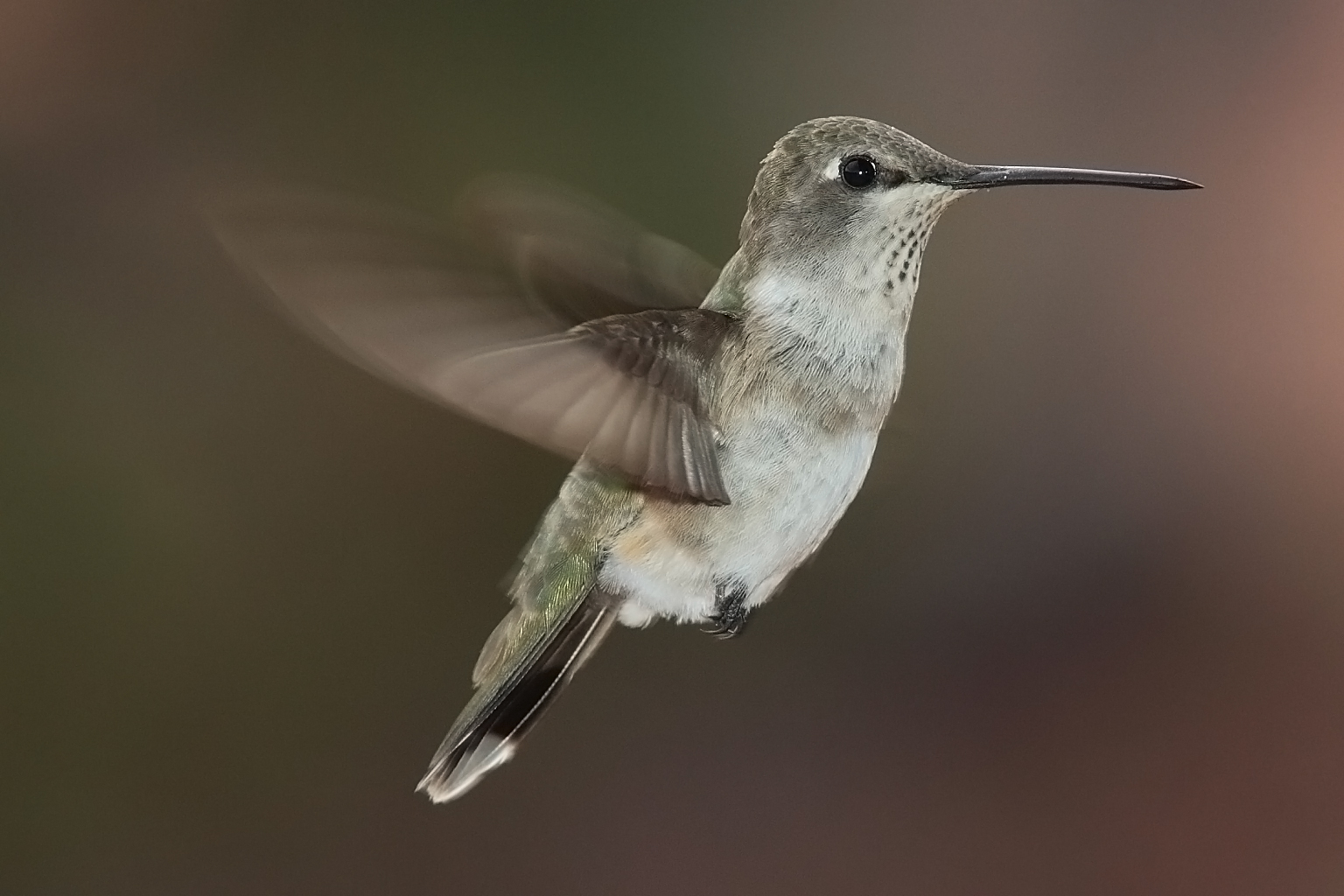Please note: Osher Rainforest will be closed for maintenance Jan. 14–16.
Science News
Birds Built for Speed
May 7, 2013
by Molly Michelson

With their short wings relative to body size, hummingbirds are built for hovering. Their relatives, swifts, have super-long wings, built for gliding and high-speed flight. Their common ancestor, Eocypselus rowei, had wings sized between the two and they were built for… well, it’s hard to say.
“[Based on its wing shape] it probably wasn’t a hoverer like a hummingbird, and it probably wasn't as efficient at fast flight as a swift,” says Daniel Ksepka of the National Evolutionary Synthesis Center.
Ksepka and his colleagues discovered a fossil of E. rowei in southwestern Wyoming at a fossil site known as the Green River Formation. The small bird—only twelve centimeters from head to tail—lived about 50 million years ago. Feathers account for more than half of the bird's total wing length.
The researchers compared the specimen to extinct and modern day species. Their analyses suggest that the bird was an evolutionary precursor to the group that includes today’s swifts and hummingbirds. “This fossil bird represents the closest we’ve gotten to the point where swifts and hummingbirds went their separate ways,” says Ksepka.
Their study was published last week in the Proceedings of the Royal Society B.
The shape of the E. rowei’s wings, coupled with its tiny size, suggest that the ancestors of today’s swifts and hummingbirds got small before each group’s unique flight behavior came to be. “Hummingbirds came from small-bodied ancestors, but the ability to hover didn't come to be until later,” Ksepka explains.
Closer study of the feathers under a scanning electron microscope revealed that carbon residues in the fossils—once thought to be traces of bacteria that fed on feathers—are fossilized melanosomes, tiny cell structures containing melanin pigments that give birds and other animals their color. The findings suggest that the ancient bird was probably black and may have had a glossy or iridescent sheen, like swifts living today. Based on its beak shape it probably ate insects, the researchers say.
Hummingbirds and swifts are two of many animals built for speed. Later this week, the Academy will open a new exhibit called Built for Speed, that will feature fast fishes and marine mammals. Learn more here.
Image: Mdf/Wikipedia